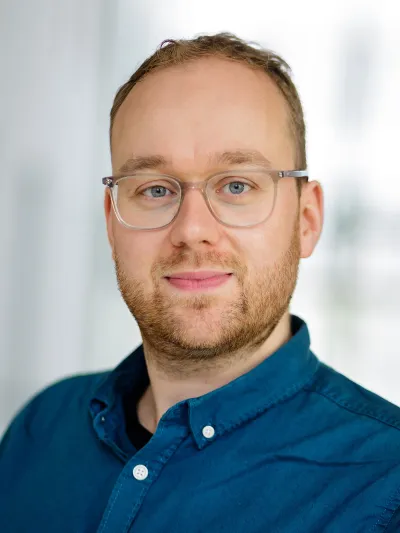Symposium: #GesellschaftBilden in the Digital Age

The Digitalisation Research Network North-East, an initiative of the University of Applied Sciences Potsdam, the Catholic University of Applied Sciences Berlin, the Brandenburg University of Technology Cottbus-Senftenberg and the Centre for Constructive Educational Science e. V., invites you to the "Symposium: #GesellschaftBilden im Digitalzeitalter".
With lectures and workshops on the topics of media and digitalisation, the symposium offers a platform for professionals from the practice and science of social work and related disciplines and professions to exchange ideas.
The event will take place on Friday, the 11th of October 2024, from 10.00 am to 3.00 pm in the main building of the University of Applied Sciences Potsdam in the large lecture hall (main building/room 108). Participation is free of charge for all registered guests. A certificate of attendance can be issued on request.
Please register for the symposium via the following link: https://survey.fh-potsdam.de/s/bd265af7/de.html
11/10/2024, 10.00 am – 3.00 pm
Programme
from 9.30 am: Joining
10.00 am – 11.00 am: Opening of the symposium
- with words of welcome from Prof. Dr. Tobias Schröder (Vice President for Teaching and Learning at University of Applied Sciences Potsdam),
- insights into the first project year of the Digitalisation Research Network North-East
- and an activating World Café
11.00 am – 12.00 pm: Specialist presentations
1. Education and power in the digital society
How can we understand "digitality" and "digitalisation"? What significance do "they" have for contemporary societies? What dimensions of power, domination and inequality permeate digital societies? And what contribution can educational and social professionals make to shaping an emerging digital society in such a way that social, cultural, political and economic participation can be guaranteed for as many people as possible? The lecture is dedicated to these questions – and, if possible, their answers – from a media pedagogical and transdisciplinary perspective.
Lecture by Prof. Dr. Valentin Dander (project manager for the GMK in the Competence Network against Hate on the Net)
2. Social work and social media
We have something to say! But are Instagram, Facebook and co. suitable channels for communicating profession-specific perspectives? Reflections on the mission of social work in social media.
Lecture by Prof. Dr Nadja Wolf (Professor in the Social Work degree programme at Fresenius University of Applied Sciences in Munich)
12.00 pm – 12.45 pm: Lunch break
12.45 pm – 1.00 pm: Intermediate greeting
by Prof. Dr. Frank Früchtel (Dean of the Faculty of Social and Educational Sciences at the University of Applied Sciences Potsdam)
1.00 pm – 2.30 pm: Workshops
1. Prevention of cybergrooming and sexual harassment online
The workshop takes the phenomenon of sexting as a starting point to deal with the phenomena of "sexting" and "cybergrooming" in terms of media education. The main objective here is the question of how professionals can deal with these topics in everyday life with young people. On the one hand, participants will be shown the dangers and possible limits under criminal law, while on the other hand they will be shown how to deal with young people on these topics in a respectful manner without pre-judgement. Inputs and interactive exercises will alternate and there will also be room for participants to share their own experiences.
Workshop by Prof. Dr. Cordula Endter (Professor of Social Work in the Digitalised Society at the Catholic University of Applied Sciences Berlin)
2. Digital worlds in the youth welfare office. From surveying youth welfare to terra incognita
The workshop deals with the topic of digitalisation in youth welfare by first looking at existing digital practices and their impact on the work of a youth welfare office. The workshop will then focus on innovative areas – the terra incognita of digital possibilities – that can offer transformative potential for social work, but also require careful observation due to their unfamiliarity.
Workshop by Dr. Bernhard Kohl (academic employee at the University of Applied Sciences Potsdam in the project P3Dual and employee in the specialist management of the Berlin-Lichtenberg Youth Welfare Office)
3. Fake news & hate speech – Media competence as the key to democratic competence
The digital transformation of society is in full swing and the "digital native" generation is right in the middle of it. Social media such as TikTok, Snapchat or Instagram are actively used from the age of 12 at the latest to exchange information and present themselves. WhatsApp and online games such as Clash Royale, Fortenite or Brawl Stars are already used daily by younger children, even if they have not yet reached the appropriate age of use. According to the JIM study, young people between the ages of 12 and 19 regularly come across fake news and hate speech. How do we as educators deal with our educational mission in a society that is developing so rapidly digitally? The workshop provides an overview of current media use by young people, looks at the topics of "fake news" and "hate speech" in the context of our own work and offers the opportunity to discuss success factors for digital transformation in youth work.
Workshop by Kristin Ehlert (qualified social pedagogue, works as a freelance media pedagogue in school and extracurricular media education)
2.30 pm – 3.00 pm: Wrap up of the symposium and outlook
Digitalisation Research Network North East

